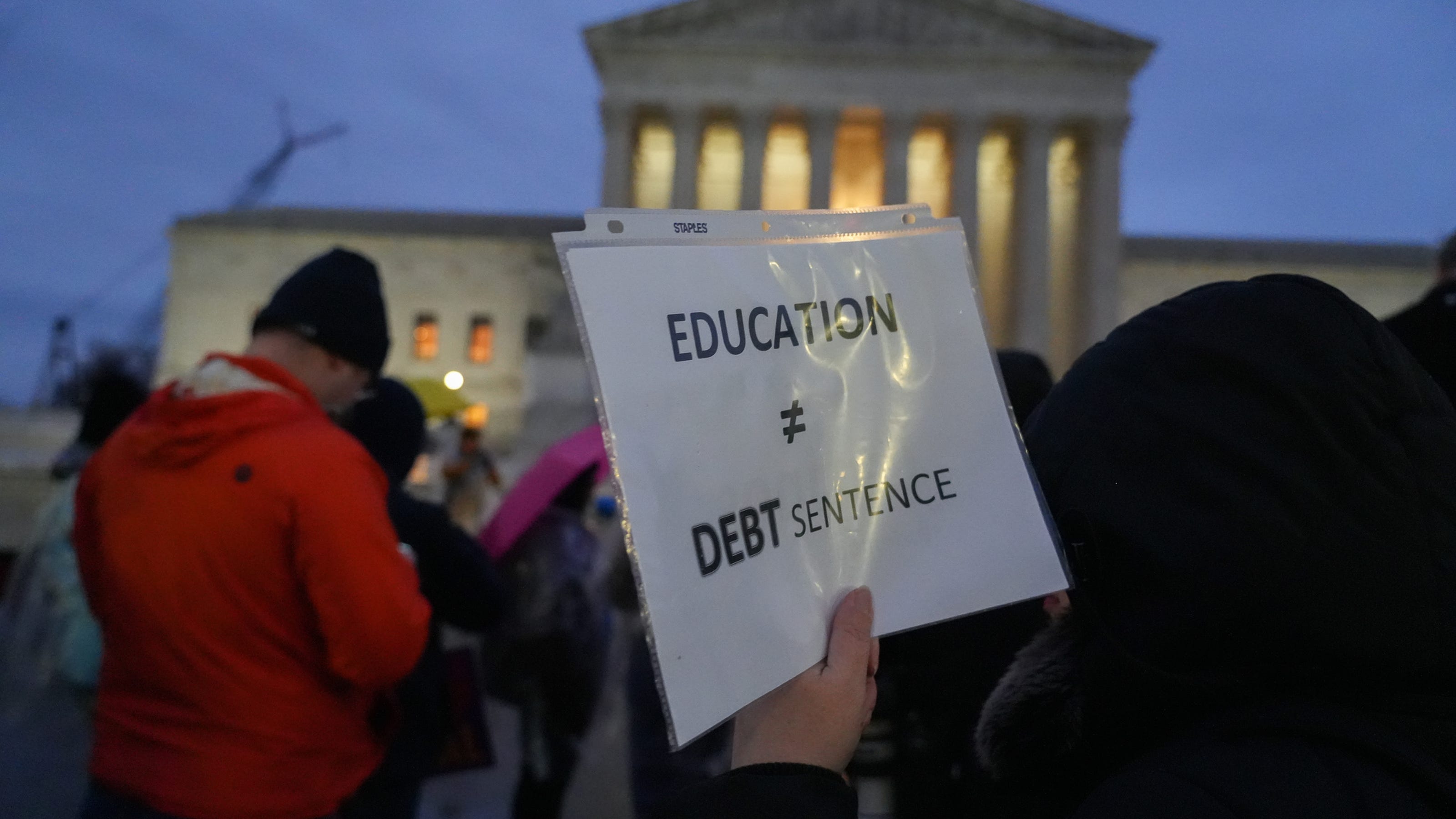- Sep 4, 2005
- 24,717
- 14,599
- Country
- United States
- Faith
- Atheist
- Marital Status
- Single
- Politics
- US-Others

With Biden's student loan debt forgiveness in limbo, lawmakers consider colleges' role
At a hearing meant to poke holes in the Biden administration's mass debt relief plan, both Republicans and Democrats agreed schools should have more skin in the game.
www.usatoday.com
Amid a clash Thursday over President Joe Biden's beleaguered student loan forgiveness plan, one theme emerged that at least some members of Congress could agree upon: Colleges need to take more responsibility for the debt crisis.
The House Subcommittee on Higher Education and Workforce Development, chaired by Republican Rep. Burgess Owens of Utah, held a hearing aimed at examining the implications of Biden’s student loan proposals for students and taxpayers. One of those – broad relief of up to $20,000 in debt for borrowers making less than $125,000 – is held up in the U.S. Supreme Court.
The two-hour hearing, the subcommittee’s first meeting this session, consisted largely of the usual partisan talking points. Republicans decried the burdens debt forgiveness places on “hardworking Americans” and the prospect of creating a culture of overreliance on loans. Democrats lamented the declining value of a Pell Grant amid skyrocketing tuition and the disproportionate rates of low-income Americans who have struggled to complete their degrees but are stuck with ever-mounting debt they can’t afford.
The general idea of better holding colleges accountable for the outpaced growth in tuition and student debt, however, appeared to garner bipartisan consensus.
On the aspect they seemed to agree on (holding the colleges, themselves, accountable), I like the sound of some of the proposals.
Salerno broached the idea of requiring colleges to co-sign the loans students take out. They would then be financially responsible if a borrower is unable to make good on their payments after graduating.
Gadkaree said the first step is clear: reinstating the gainful employment rule.
The rule, revoked under former President Donald Trump, required any program whose typical graduates’ debts exceeded a certain percentage of their income to improve their outcomes or risk losing access to federal funding. The vast majority of schools affected by the rule were for-profit colleges, which account for half of all student-loan defaults.
I would extend the second provision even further, and instead of just primarily hitting the "for profit" colleges (or as they also called them "low quality institutions"), I would also hit the "respectable" institutions as well when they're knowingly admitting people into programs (that are known to have a low job placement rate) and gleefully taking the federal loan money, and then leaving the borrowers out to dry when they get to the real world and realize their degree isn't very marketable.
For instance, every year in the US, there are 90,000 degrees conferred in Visual and Performing Arts, and 90,000 conferred in Journalism.
According to the Bureau of Labor statistics, the job forecast for those two fields are
Journalism: 4,600 openings per year over the next 10 years
Visual and Performing arts: 2,700 per year over the next 5 years (much of it not full-time salaried work)
If you do the math on that, that's not a great job outlook (and the colleges know that). But they're happily taking the money for enrollment into programs that they know have lower than a 10% job placement rate at 12 months. I think the colleges should take responsibility for that. It's their admissions advisors who talked the 18 year olds into pursuing non-viable degree in a "longshot" field.
I think that's likely why in countries where public colleges are free (to those who get accepted) like Scandinavia, they set very strict entry requirements for those specialized fields and enforce maximum quotas on them. They understand that "hey, everyone is chipping in on this, we don't need tens of thousands of kids emerging 4 years from now with theater degrees who end up working retail after society footed the bill"
